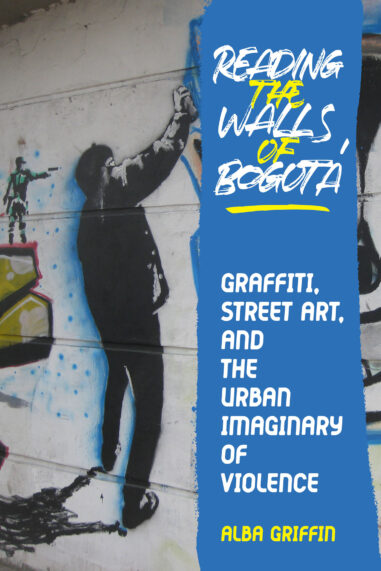A cultural imaginary is a structuring space through which collective understandings of cultural and society phenomena are formed, reproduced, and accepted as the norm. Reading the Walls of Bogotá uses graffiti and street art to explore the urban imaginaries of violence in Bogotá, Colombia. These artistic forms are produced and received in different ways in different areas of the city and offer an insight into citizens’ everyday experiences and perceptions of violence from the political, to the personal, to that of structural inequality. Through graffiti, in which critiques of memory, space, politics, and aesthetics are embedded, artists and their viewers form vernacular theories through which they interpret the world and the spaces they inhabit. By focusing on creative expression, Alba Griffin shows how Bogotá’s residents respond to imaginaries of violence, how they critique the norms, how they appropriate space to challenge or negotiate violence, and how they push back against inequality.


